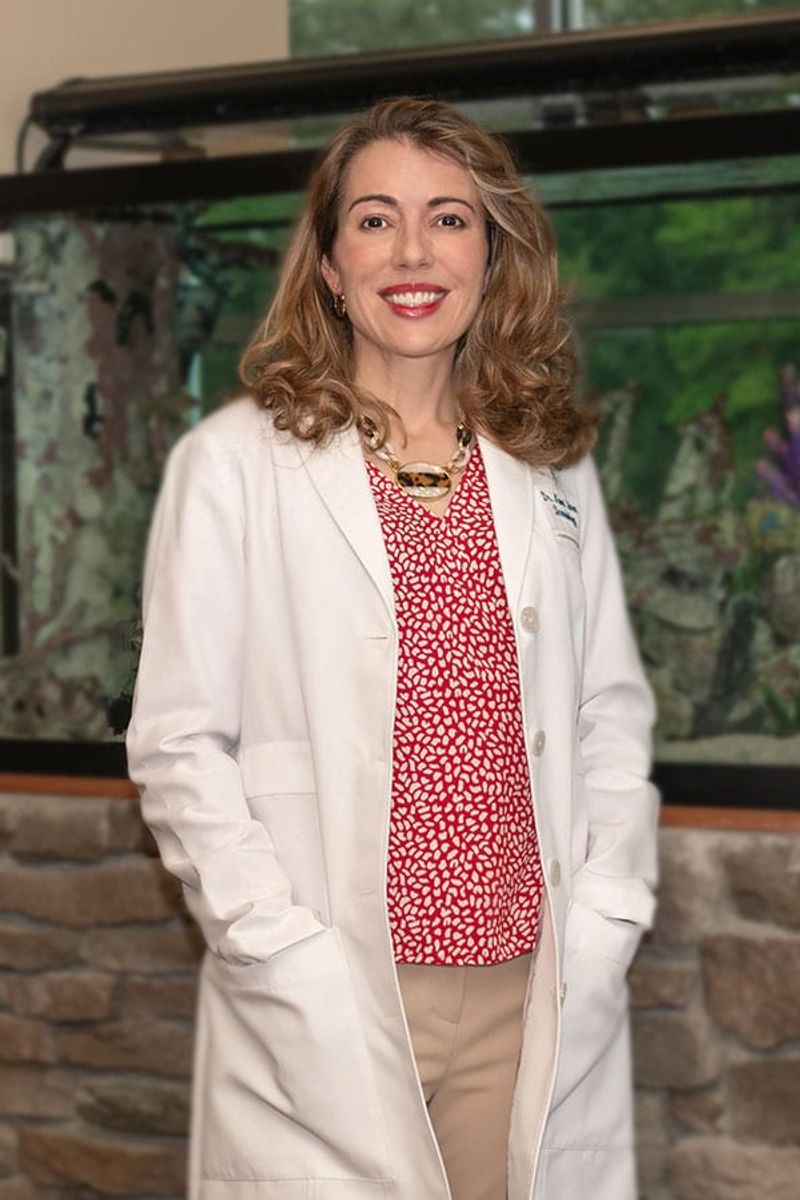Check Your Skin, Save Your Life

Check Your Skin, Save Your Life
With summer rapidly approaching and the CDC allowing vaccinated individuals to gather without masks, people are increasingly eager to spend time outdoors. The warm sun and being in the company of others is more appealing this summer than ever before. But with the increase of outdoor activities comes the increase of sun exposure, which also means an increased risk of developing skin cancer.
The most common type of cancer in the United States, more than two people die of skin cancer every hour.
As the weather gets warmer and more people want to spend time outdoors, Skin Cancer Awareness Month falls at the perfect time.
During the month of May, take the opportunity to check your skin for abnormalities and schedule a dermatologist appointment.
“Even if you never sunburn, you can still get skin cancer. The good news is that all skin cancers are visible, and when caught early, are highly treatable,” said Naomi Simon, a dermatologist at Piedmont HealthCare Mooresville Dermatology Center.
What is skin cancer?
Skin cancer occurs when healthy cells in the skin change and grow out of control, forming tumors.
According to Simon, there are four common types of skin cancer: basal cell carcinoma, squamous cell carcinoma, melanoma, and Merkel cell carcinoma.
“When people hear ‘skin cancer,’ many may think of melanoma, but there are several types of skin cancers, including melanoma,” said Simon. “Melanoma and Merkel cell carcinoma are the most serious.”
As the most common, basal cell carcinoma accounts for 80% of all skin cancers, while squamous cell carcinoma accounts for roughly 20%.
Melanoma is more likely to grow and spread than other forms of skin cancer; however, it only accounts for 1-2% of all skin cancers. Signs of melanoma include unusual moles that may change in size, color, or border, or noticeable changes in the skin, like a red, itchy sore that will not heal.
According to Simon, a person’s risk for melanoma doubles if they have had more than five sunburns, and just one blistering sunburn in childhood can double that child’s chance of developing melanoma later in life.
Merkel cell carcinoma is a very rare but very aggressive form of skin cancer. According to the American Cancer Society, Merkel cell tumors look like firm, pink, red, or purple lumps or bumps on the skin that do not usually hurt but grow quickly.
What causes skin cancer?
Anyone can get skin cancer, but several risk factors increase your chances, the most significant risk being spending lots of time in the sun or a tanning bed.
Risk factors for skin cancer include a history of sun exposure, tanning bed use, sunburns as a child, a history of previous skin cancers, numerous moles, or a family history of melanoma.
Some believe that tanning beds are “safe” or safer than tanning in the sun, but that’s a myth. According to the Skin Cancer
Foundation, more people develop skin cancer due to indoor tanning than develop lung cancer due to smoking.
Another common myth surrounding sun exposure is the notion that you do not need to wear sunscreen in the winter. According to Simon, sun damage can happen any time of the year, so sunscreen is needed all year long.
“It’s also important to note that people of all colors, including those with brown and black skin, can get skin cancer,” said Simon.
Is skin cancer preventable?
The good news about skin cancer is that it is preventable.
According to Simon, UV exposure is the most preventable risk factor for all skin cancers. Some simple things you can do to decrease UV exposure include:
• Applying sunscreen (SPF of 30 or higher) 30 minutes before going outdoors.
• Limiting exposed skin by wearing wide-brimmed hats, long sleeves, and pants.
• Avoiding peak sun exposure from 10 am-2 pm.
• Wearing sunglasses that block UV rays.
• Seeking shade whenever possible.
• Trying UPF clothing – but you still need sunscreen on exposed skin.
• Checking your skin regularly.
How can I protect myself?
Skin cancer can be highly treatable if caught early. Unlike many other forms of cancer, skin cancer is clearly visible.
The best way to avoid the lasting effects of skin cancer is to check your skin regularly.
“Knowing your skin is critical to identify changes. Use a mirror to look at your back and check your hands, feet, and even areas covered by your swimsuit,” said Simon.
When checking your skin for abnormalities, it may be helpful to think of the “ABCDEs”:
• Asymmetry – the growth does not look the same on each half
• Borders – the growth does not have smooth edges (scalloped, uneven, etc.)
• Color – the growth is not a single color
• Diameter – the growth is larger in diameter than a pencil eraser
• Evolving – the growth looks different from others or is changing in size, shape, or color
If you do have a growth with any of the above traits, make sure to schedule an appointment with your dermatologist as soon as possible.
“Have a dermatologist check your skin annually, or more frequently if you have had skin cancer,” said Simon.
“Regardless of your skin history, commit now to protect yourself,” said Simon. “Learn to protect yourself, practice ‘safe sun,’ check your skin regularly, and establish a relationship with your dermatologist.”
About Iredell Health System
Iredell Health System includes Iredell Memorial Hospital; Iredell Home Health; Iredell Wound Care & Hyperbaric Center; Community and Corporate Wellness; Occupational Medicine; the Iredell Physician Network and more. Iredell Memorial Hospital is the largest and only nonprofit hospital in Iredell County. The comprehensive healthcare facility has 247 beds; more than 1,700 employees; and has 260 physicians representing various specialties. Centers of excellence include Women’s and Children’s; Cardiovascular; Cancer; Surgical Services and Wellness & Prevention. The mission of Iredell Health System is to inspire wellbeing. For a comprehensive list of services and programs, visit www.iredellhealth.org.
Originally posted by Greater Statesville Chamber of Commerce via Locable
Greater Statesville Chamber of Commerce
116 N Center St
Statesville, NC 28677
704-873-2892
www.statesvillechamber.org

